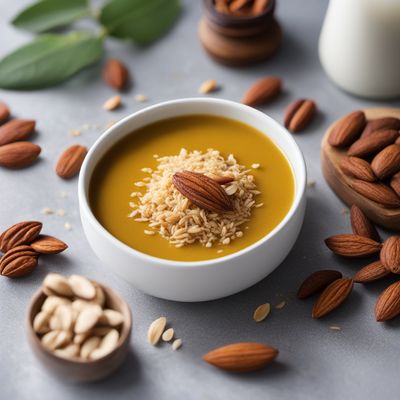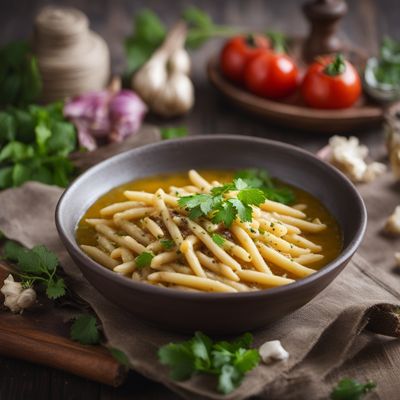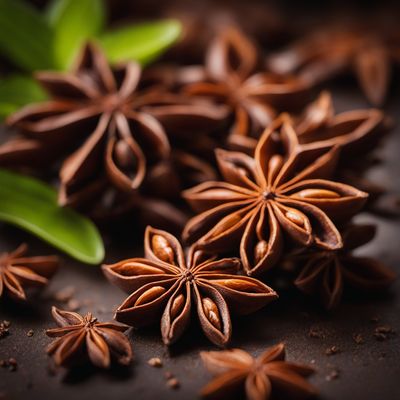
Ingredient
Cardamom fruit
The Fragrant Jewel of Spices
Cardamom fruit is a small, green pod that contains tiny black seeds. It has a strong, sweet, and floral aroma, with a warm and slightly spicy taste. The pods are typically crushed or ground to release the intense flavor and fragrance. Cardamom fruit is widely used in Indian, Middle Eastern, and Scandinavian cuisines, and it pairs well with ingredients like coffee, chocolate, citrus, and meats.
Origins and history
Cardamom fruit has a rich history that dates back thousands of years. It is native to the Indian subcontinent and has been used in Ayurvedic medicine for its digestive and detoxifying properties. It was also highly valued in ancient Egypt and Rome, where it was used as a perfume and flavoring agent. Today, cardamom fruit is cultivated in various countries, including India, Guatemala, and Sri Lanka.
Nutritional information
Cardamom fruit is a good source of essential minerals like potassium, calcium, and magnesium. It also contains antioxidants and has been associated with various health benefits, including improved digestion, oral health, and blood sugar control.
Allergens
Cardamom fruit may cause allergic reactions in some individuals, particularly those with a known allergy to spices. It is advisable to exercise caution and consult a healthcare professional if you have any concerns.
How to select
When selecting cardamom fruit, look for pods that are plump, firm, and green in color. Avoid pods that are yellowish or brown, as they may indicate age or poor quality. The pods should also have a strong, sweet aroma when gently crushed or opened.
Storage recommendations
To maintain the freshness and flavor of cardamom fruit, store the whole pods in an airtight container in a cool, dry place away from direct sunlight. Ground cardamom should be stored in a sealed container in the refrigerator to preserve its potency for a longer period.
How to produce
Cardamom fruit can be grown in tropical or subtropical regions with well-drained soil and a warm climate. It requires regular watering and protection from direct sunlight. However, it is best to leave the cultivation to experienced farmers due to its specific requirements and long growing period.
Preparation tips
To release the aromatic flavors of cardamom fruit, lightly crush the pods with a mortar and pestle or grind them using a spice grinder. The seeds can be used whole or ground, depending on the recipe. Cardamom pairs well with both sweet and savory dishes, such as curries, rice pilafs, baked goods, and hot beverages like chai tea or coffee.
Substitutions
Ginger can be used as a substitute for cardamom fruit, although it has a slightly different flavor profile. Use half the amount of ginger as the recipe calls for cardamom. Alternatively, you can use a combination of cinnamon and nutmeg to mimic the warm and spicy notes of cardamom.
Culinary uses
Cardamom fruit is widely used in both sweet and savory dishes. It is a key ingredient in Indian masala chai, Scandinavian pastries, and Middle Eastern desserts like baklava. It can also be added to curries, rice dishes, stews, and marinades to enhance the flavor and aroma.
Availability
Cardamom fruit is commonly available in India, Guatemala, Sri Lanka, and other countries with suitable climates for its cultivation.
More ingredients from this category
Recipes using Cardamom fruit » Browse all

Bengali-style Chocolate Spread
Choco Delight: A Bengali Twist on Chocolate Spread

South Asian Spiced Kringle
Flavorful Fusion: South Asian Spiced Kringle

Bhutanese-inspired Spiced Buckwheat Waffles
Himalayan Delight: Spiced Buckwheat Waffles with a Bhutanese Twist

Fusion Magaj Delight
Spiced Almond and Coconut Fusion Delight

Maasai Coconut Pancakes
Savory Coconut Delights: Maasai Style Pancakes

Khai Phalo - Thai-Style Braised Eggs in Spiced Coconut Sauce
Coconutty Delight: Thai-Style Braised Eggs in Fragrant Spiced Sauce

Nan-e Shirmal - Persian Saffron Bread
Golden Delight: A Taste of Persian Saffron Bread

Passatelli in Brodo - Uttar Pradesh Style
Savory Parmesan Dumplings in Fragrant Spiced Broth - A Taste of Uttar Pradesh

Asian-inspired Spiced Honey Cookies
Exotic Honey Spice Delights: Asian-inspired Spiced Honey Cookies

Gajak - Traditional Indian Sweet Treat
Crunchy Delight: Gajak - A Sweet Symphony of Nuts and Jaggery

Botswana-inspired Date and Nut Dessert
Savory Delights: Botswana's Nutty Date Fusion

Kodava-Style Spiced Hot Dog
Flavors of Kodava: A Spiced Twist on Hot Dogs
